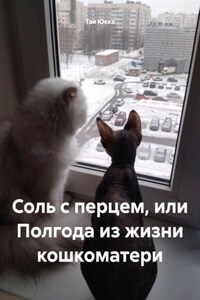Copyright
Collins
An imprint of HarperCollinsPublishers Ltd.
1 London Bridge Street
London SE1 9GF
www.harpercollins.co.uk
Collins is a registered trademark of HarperCollins Publishers Limited
First published in 2009
This edition published in 2011
Copyright © HarperCollinsPublishers
A catalogue record of this book is available from the British Library.
Created by: SP Creative Design
Editor: Heather Thomas
Designers: Rolando Ugolini
All rights reserved under International and Pan-American Copyright Conventions. By payment of the required fees, you have been granted the nonexclusive, non-transferable right to access and read the text of this ebook on screen. No part of this text may be reproduced, transmitted, downloaded, decompiled, reverse engineered, or stored in or introduced into any information storage retrieval system, in any form or by any means, whether electronic or mechanical, now known or hereinafter invented, without the express written permission of HarperCollins ebooks
HarperCollinsPublishers has made every reasonable effort to ensure that any picture content and written content in this ebook has been included or removed in accordance with the contractual and technological constraints in operation at the time of publication
Source ISBN: 9780007436682
Ebook Edition © MAY 2017 ISBN: 9780008259075
Version: 2017-05-02
PART ONE
YOU AND YOUR DOG
Border Collies are becoming increasingly popular pets and companion dogs for people who see this traditional working breed as âhaving it allâ â namely, good looks, intelligence, high trainability and exceptional athletic prowess. Owning a dog is a huge responsibility but extremely rewarding. When you welcome a Border Collie into your home, you have to consider that he will need exercise, feeding, games and companionship as well as daily care.
Chapter 1
History of the breed
From being a dog that, barely three or four decades ago, was rarely seen beyond a farmyard, and which was bred almost solely for the purpose of working livestock over vast distances, and often highly challenging terrain, the Border Collie has since proved itself capable of not only adjusting to a multitude of different roles and pursuits but also excelling at them. Obedience, Agility and Flyball competitions, Working Trials and even Heelwork to Music events â the modern Border Collie now dominates them all, as well as winning honours in the show ring and displaying a talent for Search and Rescue and sniffer dog work.
Working roots
Over and above all these new activities, however, Border Collies, at their genetic heart, still remain, first and foremost, sheepdogs. They have been genetically programmed for centuries to possess a high level of energy and a range of instincts and sensitivities which are consistent with their earliest working role. However, these can be a problem for owners who do not sufficiently understand or correctly handle them.
The Border Collieâs history as a breed is generally thought to date back to the droving or general stock dogs used by Celtic tribes in Ireland and Scotland around 2,000 years ago. It is also believed that the word âCollieâ is an adaptation of the Celtic word for âusefulââ and that Border was later added to the breedâs name due to the border country between Scotland and England where these dogs traditionally worked.
Over time, it is likely that these original âColliesâ were interbred with even more exceptional livestock working dogs brought over by the Romans when they invaded Britain. The Romansâ skill appears to have lain in selectively breeding dogs that could control and manage animals â most commonly, sheep â under the command of a human master, without threatening them, which was a major genetic achievement in itself. They are also thought to have been responsible for developing dogs with a classic way of stalking, âeyeingâ and herding livestock, with a mesmerising glare, which you will still see in Border Collies today.
This happy family group shows the author and her three Border Collies, whom she has bred herself with their mother, Ilona, standing in the foreground.
Richard Palmer and Rolando Ugolini
The whole Border Collie method of working livestock is actually an adaptation of the wolfâs hunting sequence, with any more predatory impulses contained through the use of skilful breeding and training.
Breed recognition
For many centuries, farmers, shepherds and their trusty Collie dogs went about their daily work with little in the way of wider public recognition â until, that is, the introduction of the first Sheep Dog Trials in Britain in l873. At such events the skills of different sheepdogs could be displayed and compared. Then, in 1907, the International Sheep Dog Society was formed, keeping an official record for the first time of all the top working sheepdogs and their genetic lines. It is from these top working ISDS dogs, all those years back, that our modern pedigree Border Collies descend.








